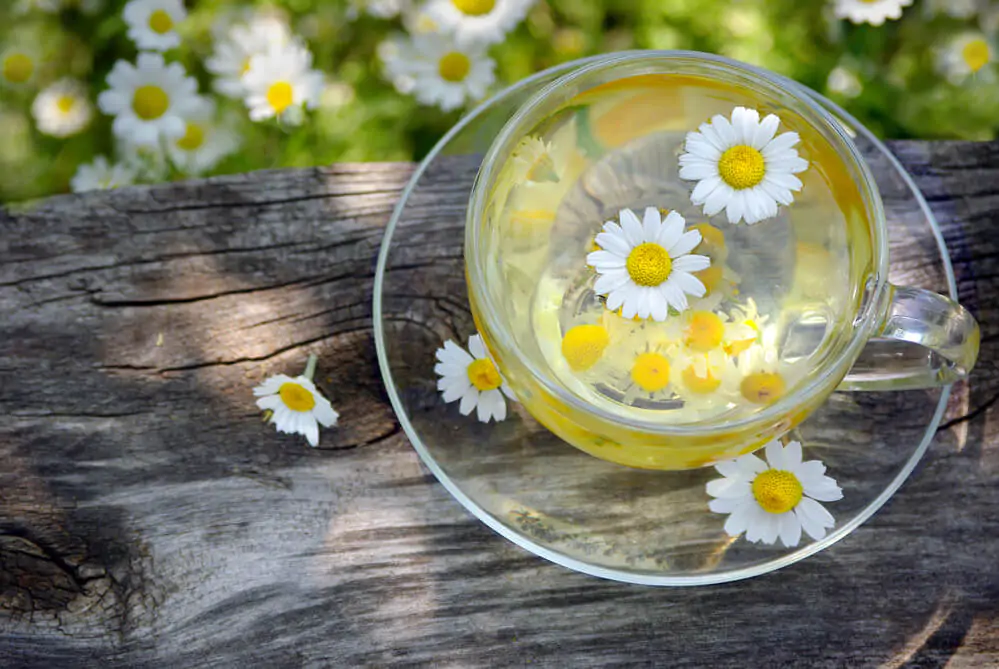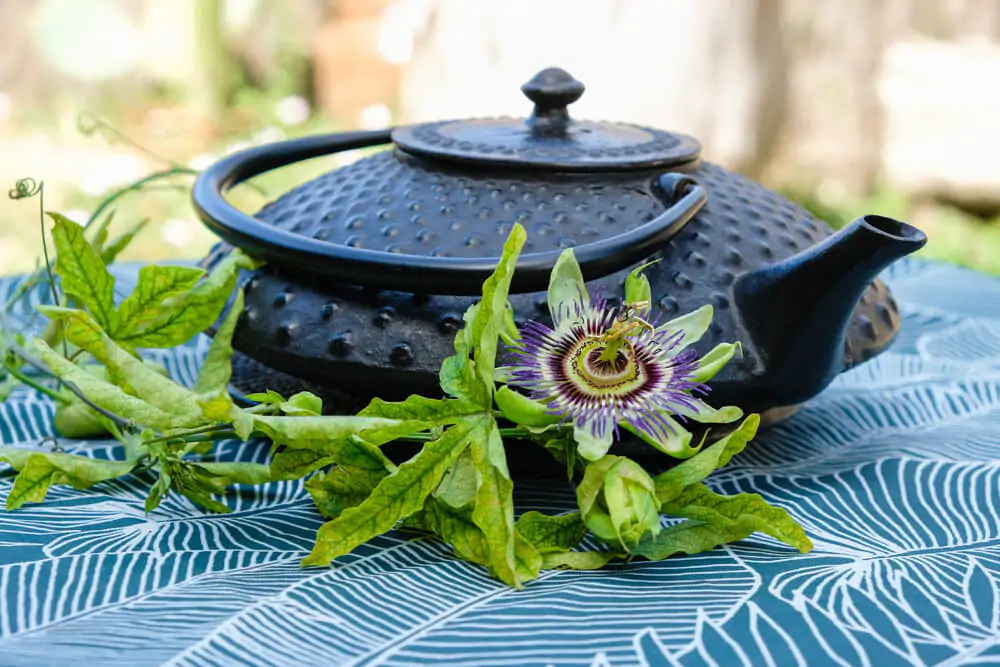Stress can be overwhelming, especially during these challenging times, so tea is a great way to relieve it. Read on to find out what tea is calming.

Two years after the pandemic started, I became more stressed and anxious. According to the American Psychological Association, about two out of three adults in America have experienced increased stress levels throughout the pandemic. Almost half reported a rise in having episodes of negative behaviors.
In these moments of weakness, I omit my cup of Joe routine and go for tea. The former doesn’t help me much because it occasionally gives me the jitters, but the latter undeniably soothes my nerves.
A personal go-to would be chamomile, but I’ve also jotted down teas you can choose from that effectively reduce anxiety and stress.
Chamomile Tea
Made from the chamomile flower, this aromatic tea contains sedative properties that can help you relax after a long stressful day. It’s best consumed before hitting the sack as studies have shown that chamomile straps itself to benzodiazepine receptors which helps reduce anxiety and induce sleep.

Flavor-wise, it’s gentle! It has a soft flowery taste and apple hints that give the tea its mild sweetness.
Get to know more about this calming beverage by learning how to brew and how long to steep chamomile tea.
Oat Straw Tea
Are you familiar with the hay-like grass that sprouts along with the green oats? Its extracts can be brewed into a tea and effectively calm you down. Oat straws inhibit an enzyme called PDE4, which aids in reducing stress and anxiety levels.
In addition, it can also bring down the volume of proinflammatory cytokines in the body. These are small proteins that might be correlated with mental health disorders such as depression.
Some may find its bland and oatmeal-like flavor boring, so I recommend adding about half a teaspoon of honey.
Lavender Tea
Brewed from the buds of the Lavandula angustifolia plant, this is also one of the most recommended teas out there that can help you relax. Compounds found in its plant regulate the brain cells’ impulse transmission, producing a soothing effect and improving overall mood. A very recent study also showed that older adults that consume lavender tea in the morning and at night reduced anxiety and depression scores.
Lavender tea is ideal for women, too! Although more studies are needed, the beverage has a promising effect in dealing with menstrual cramps before or during the cycle, though smelling lavender is still the most surefire way to aid this.
As for the tea’s flavor profile, it’s a bit floral and mellow sweet with a minty hint.
Did you know you can add lavender to improve the taste of your cup of Joe? Check out other ways to spice up your java with our list of things you can do to add flavor to your ground coffee.
Passionflower Tea
Another purple-tinted flora that’s known for its calming properties is the passionflower. Those who struggle to sleep at night, either due to anxiety or insomnia, will find this soothing beverage a God-given gift, as tea is commonly used to treat these disorders. People in Europe have also used this to treat restlessness and agitation.

Studies have shown that passionflower tea amplifies the level of gamma-aminobutyric acid in the brain. This compound helps you relax and improve your sleep quality by lowering brain activity. However, drowsiness is also one of its side effects, so make sure to drink it if you plan to take a nap.
In terms of the taste, it’s more grassy and earthy than the other teas on our list, but personally, it’s the second mildest next to chamomile.
It’s Not All About The Tea
A plethora of research and studies have already proven the efficacy of drinking tea to help calm the nerves. Still, surprisingly, one study suggested that the act of brewing one can also assist in improving your mood and reducing your anxiety levels as well.
According to a small study conducted by the City University London psychologists Dr. Malcolm Cross and Rita Michaels, their participants confirmed that brewing the tea, and drinking it after, contributed to the overall effect of mediating stress. Moreover, the researchers also noticed a significant increase in social interaction between the tea drinkers and the non-tea drinkers.
Though some critics find the study inconclusive at this point, it is true that, in some way, socializing can be an effective stress-coping mechanism.
